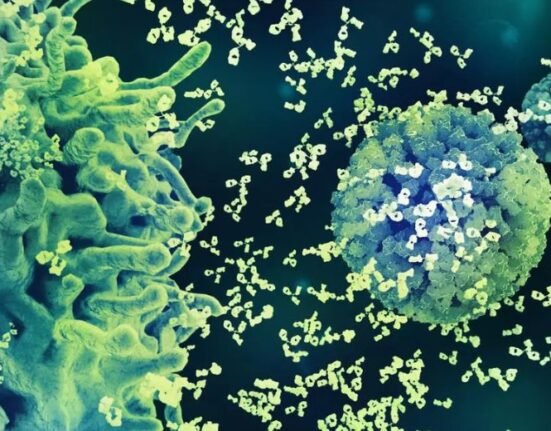H.Q. Team
January 29, 2023: Eli Lilly announced that it had received US FDA approval for a tablet to treat a rare form of blood cancer.
The FDA approval for Jaypirca 200 mg was based on efficacy data from 120 patients with mantle cell lymphoma (MCL). Half of them responded to the treatment, while 13% achieved a complete response.
Mantle cell lymphoma is a rare type of blood cancer that starts in white blood cells in the lymph nodes and spreads to other body parts.
Annually, about one in 200,000 people worldwide, develop cancer. As cancer progresses, it can spread to bone marrow, the spleen, the liver, or the digestive tract.
Patients with active central nervous system lymphoma, allogeneic hematopoietic stem cell transplantation, or CAR T-cell therapy within 60 days were excluded.
Data efficacy
“The approval of Jaypirca represents an important advance for patients with relapsed or refractory MCL, who currently have limited options and historically have had a poor prognosis following discontinuation of treatment with a covalent BTK inhibitor,” said Michael Wang, M.D., Puddin Clarke Endowed Professor of Lymphoma and Myeloma at The University of Texas MD Anderson Cancer Center.
“These data indicate that Jaypirca can provide efficacy in patients previously treated with a covalent BTK inhibitor, potentially extending the time patients may benefit from BTK inhibition therapy,” he said.
Bruton’s tyrosine kinase (BTK) is an enzyme found inside specific immune cells that plays a fundamental role in the immune response to antigens, which are proteins recognized as foreign materials in the body.
Immune responses
The BTK enzyme works with activated receptors on the surface of immune cells to transfer signals into the cell and inform immune responses.
Jaypirca is expected to be available in the U.S. ” in the coming weeks,” according to a company statement.
“Jaypirca offers a new approach to targeting the BTK pathway following treatment with a covalent BTK inhibitor and has the potential to meaningfully impact the treatment paradigm for relapsed and refractory MCL patients,” Wang said.
The labelling for Jaypirca contains warnings and precautions for infections, haemorrhage, cytopenias, atrial fibrillation and flutter, second primary malignancies, and embryo-fetal toxicity.
The pooled safety analysis of the total study population evaluated 583 patients with hematologic malignancies and was administered with Jaypirca 200 mg daily as a single agent.
Diarrhea
In this pooled safety population, the most common adverse reactions to Jaypirca therapy, occurring in 20% of patients or more, were decreased neutrophil count, decreased hemoglobin, decreased platelet count, fatigue, musculoskeletal pain, decreased lymphocyte count, bruising, and diarrhoea.
“Until now, people living with MCL who can no longer be treated with BTK inhibitors have had few alternatives,” said Meghan Gutierrez, chief executive officer of the Lymphoma Research Foundation. “The approval of Jaypirca brings a new treatment option and, along with that, new hope for people with relapsed or refractory MCL.”








